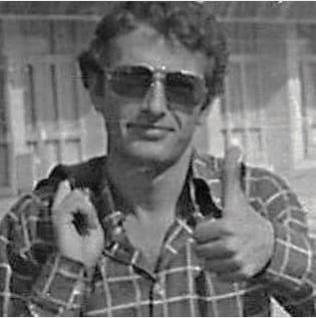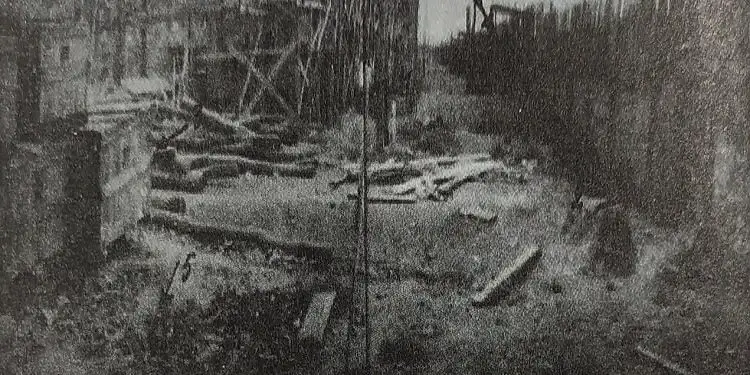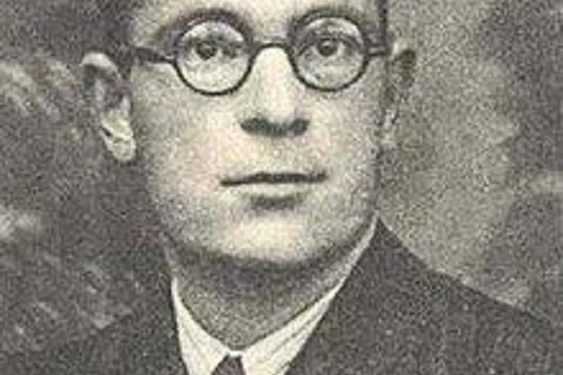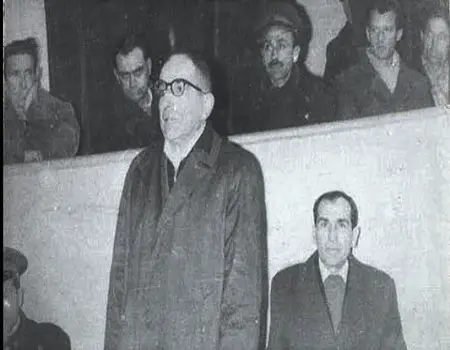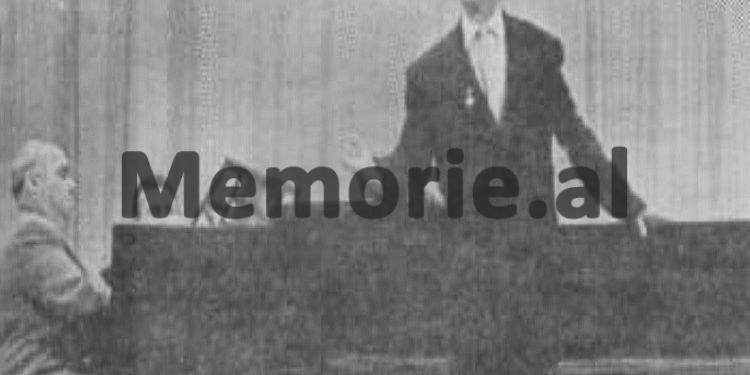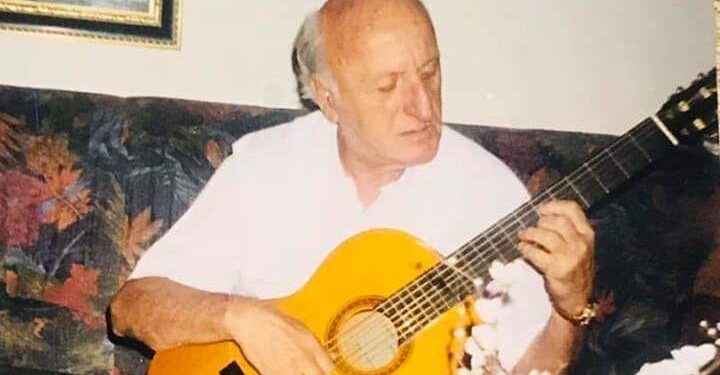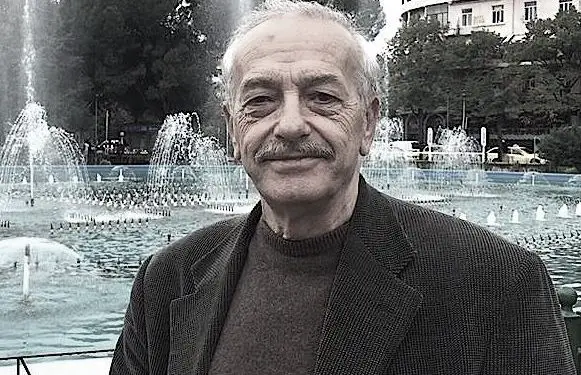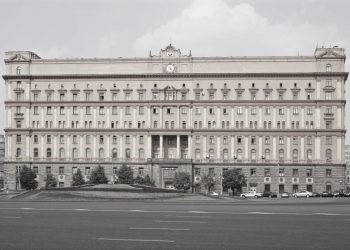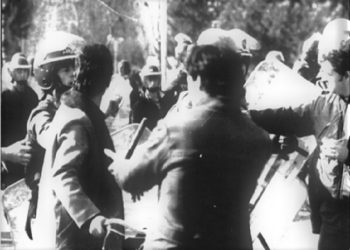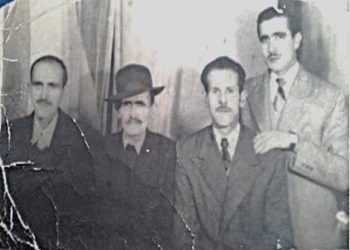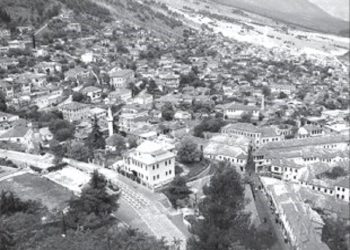By Maksim Rakipaj
Part eight
Memorie.al / Maksim Rakipaj, originally from Përmet, whose family had helped and supported the Anti-Fascist National Liberation War, after graduating from the Navy School in Vlora, in 1972 he was appointed an officer in the Merchant Navy, where he served with dedication until in 1977, on the “Durrësi” steamer, he was arrested and sentenced to 15 years in political prison, as part of a “group”, which also included his colleague, Aladin Kapo, the son of Hysni Kapo’s brother. Family biography was also the reason for his punishment. After the end of the war, two of his uncles were sentenced to political prison, his grandfather was declared a kulak and in 1976, his father was expelled from the party. Maksi began serving his sentence in the Ballsh camp and in 1979, he was transferred to the Spaçi camp and then to the Qafë Bari camp. He was released on September 12, 1984, benefiting from a reduced sentence, from an amnesty. After being unemployed for a long time, with many hardships, he got a job as a miner in the Mzezet mine, he worked until 1991. After the 1991s, he started working in the administration of the Municipality of Durrës, he served until 1997 and after that, he returned to the Merchant Navy (the last captain of the transoceanic ship “Vlora”), until he left Albania for Italy, (illegally on a dinghy), where he currently lives for many years. Since the 90s, in addition to various jobs, Maksim Rakipaj has also devoted himself to writing, such as; poetry, prose, fiction or documentary, translations, etc., publishing several books, such as: ‘Prophet – Khalil Gibran’, (translation from English ‘Toena’ 2003), ’20 love poems and a song of sadness’, (translation from Spanish, ‘Toena’ 2003), ‘Alive after the shipwreck’, (published by ISKK, 2014), ‘Bukowski – poetry’, (translation from English, ‘ENEAS’, 2015), ‘Trilusa m’Tirane’, ( translation from Italian, ‘UEGEN’, 2015), ‘Anthology of Arabic-Persian Poetry’ (English translations, ‘UEGEN’, 2015), ‘The Complete Sonnets of Shakespeare’, (English translation, ‘ADA’ 2016′) , ‘Survivor’ (autobiographical novel, ‘2 East, 2 West’ 2018), ‘Nobelists – poetic anthology, (UEGEN 2019), ‘Hymn of happiness’ (‘JOZEF’ 2023), etc. From the creativity of Mr. Rakipaj, Memorie.al is publishing the book “Survivor”, (published in 2022 by “JOZEF” Publishing House in Durrës, directed by Mr. Aurel Kaçulini), where he has described his life chronologically, where the part the main one is that of serving the sentence in camps and prisons, as well as various characters, his co-sufferers that he met in the communist hell, etc.
Continues from last issue
Meetings with families in concentration camp no. 309, Ballsh
It was a camp designed by an evil mind and spirit, for a slow extermination. Food: bread 600 gr. per day (but very often, it was less than 500 gr. and many times they gave only 450 gr. of some boiled potato grain). Breakfast: a kind of soup without a drop of fat, with leeks, cabbage or tomatoes, etc., boiled. Lunch: one day of pasta juice, one day of rice juice and one day of Grosso juice, where occasionally a grain of rice or Grosso floated in, depending on the day. Dinner tea (burnt sugar, the juice of which was served for tea). It is understood that those who did not have help from home died within a year, exhausted by hunger and diseases.
I was among the lucky few, that my family was not separated. Everyone who had help from the family had a group of their own, to help with food, it was impossible to put anything in your mouth and not be under the gaze of the hungry, to be choked. At least after the meeting, carefully rationing what the family brought, for some time the canteen food, give it to someone else. I don’t forget the coffee ritual. Coffee was a rare thing, inviting someone for coffee was the highest show of respect that you could give someone.
Meeting
My grandmother, mother and Dashi, my brother, came to me. The meetings were held in a covered shack, divided in the middle by a counter and bars, which had two or three counters, which the policeman opened to put food in and to meet, then the policeman who was standing there ‘ closed it. 2-3 meetings were held simultaneously. That day, together with me, there was a meeting with a Vlach, or a shepherd from Cologne, about 55 years old, he had his first meeting, and his daughter came to the meeting. Very beautiful girl, her father was crying with sobs, he could hardly get the words out…; “I took you by the neck, but believe me, for God’s sake, I didn’t do or say anything…”!
The daughter, with reddened cheeks from emotion… said: “Listen, father, you did this, you know, that I won’t come to you again, come and wipe your tears… it’s a shame… or will you please them” and made a nod to the policeman. “These are not touched by our tears… they are used to it, don’t expect me to cry too, I don’t cry, I’ve had enough that my soul cries”! My grandmother hugged her: – “Ah, my mother’s daughter”!
Investigation = confusion
In one of his novels, Ismail Kadare, there is a character that remains in the mind: an elderly, illiterate man who tears down the Germans’ slogans, after they carried out the massacre of Borova. The old man had always had respect for everything written, that’s why he also raised a sign placed by the German vanguard troops, which had fallen to the ground. On that sign, it was more or less written: “Here they shot us with guns. Massacre”! He learned later what was written there, after he had seen with his own eyes, the bloody massacre that the Germans did in the village. From that day he went crazy and tore up every written board. The written signs were to blame!
Even in the revolt of May 1973, in Spaç, he was such a character. During the days of the revolt, he uprooted and destroyed all socialist emulation stands, newspaper stands, and notices hanging from the camp command, everything written. When they suppressed the revolt, with the known cruelty of the communist government, they re-sentenced him, along with many others.
I met him in the Ballshi camp, where he was transferred after his reconviction. I don’t remember his name; it’s been many years since then. Maybe one of my prison friends, who have a better memory than me, remembers his name. He was a mountaineer from Dibra, tall, with a gray mustache, huge, as if he had come out of the epic of the Kreshniks. Someone told me in Ballsh:
“This is the one who destroyed all the signs and stands during the revolt”! I wanted to meet him, I was curious to talk to him once. I found it where I didn’t think of it: in the camp library! I waited for about half an hour, but he had no intention of leaving right away. “What the hell is an illiterate looking for in the library”?! I walked in; saw him sitting with a thick album in front of him.
I notice that it is an album with photos of Albanian ethnographic clothing. He had not turned the page for over ten minutes. It was a photo of a woman with ample breasts, wearing the traditional costume of the Great Highlands. Beautiful photo. Prominent features of a beautiful, strong, brave mountaineer. Dressing in the folk costume embellished it even more. He felt that I was also seeing him and turned his head with a smile, without speaking.
– “I think you liked me” – I broke the silence. – “Boll. There is nothing more than a man begs for: a good holiday, here by his side and we share our life, mountains with him, faith”. – “I want to drink a coffee, are you coming?” – “Ah, you come white! Yes, mother, why I am not coming”!
He told me that they had arrested him because they suspected him of having hidden weapons. No torture brought any benefit; the mountaineer did not speak, but said one word: “No, men, I have no hidden weapons”! He poured the coffee, with a special mountain ceremony, slowly, as if he were drinking some holy drink, and thanked often, so much so that it was hard for me…!
“I had a long time without tasting a good coffee, bro. Hey; you’ve got a lot of honor…! Someone told them about confusion, so that’s what I tell them: confusion, not investigation, about stinkers. They come to my confusion, with a thick blue book. They knew I was a believer. They opened it and called me, a man with a beard. This book is the Koran and this one with a beard is the prophet Muhammed! I believed it. The man told me, because of the fact that they are holy, bro?! I kissed the holy book.
Swear, then, in front of the Koran, that you don’t have any weapons! I don’t have a husband in front of the Koran! Yes, I said, I’ve wanted them since Italy broke up in September ’43. The whole town was looted from flour and macaroni warehouses, I only took handguns, bombs, rifles, cartridges, which will turn the face white, on a bad day…! What’s up, there’s a dump, but the man has no weapon, he’s shit, not a man…! Eeeh, when I went out to Spaç, I saw him with that blue book…! How are they breaking the Koran, here in prison!?
When I found out that that book, with the Capital dog and the one with the beard, was not the prophet Muhammed, peace be upon him, but the father of hell himself, bro! It was Kal Marxi, how the hell is he, Krral Marxi! That’s it, when you don’t know how to read and write, they make you a fool…and they made me once…! Why did I break the tables, huh?! In revolt, huh? Well, we lived somehow in the village, sometimes good, sometimes bad, like the rest of the world, they told me… but when these signs entered the village, those of the socialist emulation and became stingy, we only got 10 ALL per day of work, I’m not sorry had”.
– “No matter how long the prison remains with the head, bac”?
– “As long as this sign is shit, hang it on the wall, it’s useless to get out of prison”!
Nuro Hoti, the man who tried Goli-Otoku
In the Ballshi camp I also met the late Nuro Hoti, he was a very good friend of mine and soon became my friend. Masculine, not only in appearance, he was a reserved type, in short he said a lot of things. Today, that he is no more, I feel that I have lost a rare friend. He had been in prison, in all the regimes, in the time of the King, in the time of the Italian and German occupation, in Yugoslavia as well, and he was left to try, finally, only our prisons. A good economist and lawyer, a living encyclopedia, was Nuro, you could talk about anything with him. We often hung out together, but he didn’t like to talk much when a third person came, whoever it was.
One day, when I was with a couple of others, he beckoned me to approach him. He wanted to give me “meeting coffee”, his son had come to the meeting. Very attached to his family, wife, sons and only daughter, Nuro’s weak point. When we were preparing the coffee cutlery, a convict approached us with crutches, one leg amputated, and one palm above the knee. He offered us his fire to make coffee.
– “Do you know this? – asked Nuro, he was talking about the man with one leg”. – “No, I’ve only been here for two months, I only know that it’s at ‘twenty one'”, an annex of a silo, inhabited by blind, crippled, people unable to fulfill the most basic needs…! Only in “enlightened” socialist Albania, this happened…!
– “You don’t know the story, so… the boss is that leg stump?! They sawed him with a machine gun, while he was running away… they caught him while trying, he cut off his leg, which was hanging from a piece of stone…! They gave him a total of 25 years in prison…! When I was convicted in Yugoslavia, did you hide Goli-Otoku? It’s a prison island, on the Dalmatian coast; no one can escape from it. Except you.
A Croatian. He had been a partisan, a general with rank, Ante… Ante… I can’t remember his last name…! Brave man. I don’t know how, but he had a big fight with Tito and he threw him in prison. He is always on the run, from every prison. By order of Marshal Tito, they brought him to Goli-Otok. He was quite weak; he was completely gray, so he wasn’t even 50 years old. Except for the eyes, they gave off fire, like the eyes of the one who gave us fire for coffee…! Anyway, even from Goli-Otoku, the general escaped by swimming, in the month of February, frost… he was caught in the middle of the sea, while swimming, at night. When Tito was told what had happened, he immediately ordered his release from prison, granted him a pension, and gave him a villa in Belgrade. ‘Why are you doing this’, they asked him…! ‘This man deserves freedom’, he answered, because I didn’t want life without freedom…!
And that old man, who had to break his own leg, just because he was free, deserved all the honors, from every power that knows how to value human values…! For a long time, I didn’t have any illusions about Enver Hoxha and his ling, but when I saw the 21st trap, I don’t know what they told me…”!
Variety of characters in the camp
In the Ballsh camp, 1978
There are many old people here, sick people, people who have been in prison since 1944, ’45 and ’46. The crippled, the blind and the paralyzed are sheltered in Cellar no. 21. A former Catholic priest serves them. Here is also Zef Mala, former chairman of the Communist Group of Shkodra. They call him Professor and he is almost completely blind, but he is a man who commands respect, with dignity and broad culture. There is also another professor, Nikollë Daka. He was a professor of Latin and ancient Greek, one of his students was Ramiz Alia.
After the “liberation” he was, like most, either in prison or a worker in a brick factory. An excellent man, like most Shkodrans. I have many memories of him. He translated “Petrarch” for me, but when I was transferred, he couldn’t give it to me, they didn’t allow him to approach our group, which was about to leave for Spaç. He was also the champion of the prisons, an elderly man from Gjirokastr, arrested and sentenced without a trial, as early as October ’44. By ’78, he had only been out of prison for 10 days. Why did they put him in prison?! What was his crime?!
He accompanied the German troops as a translator, forcibly taken by them in ’43. He had studied to be a pharmacist in Vienna, he had saved many themselves from death, with his services as a translator, but their testimonies were not worth it. Here I also found a Vlonjat, Kastriot, or Kaçi, a former sailor of the ship “Dajti”. Kaçi has been here for about a year and knows all the prisoners and their stories. In the first days, Kaçi was the prison’s guide for me; he was happy to tell stories to different prisoners and you didn’t need to beg him too much, it was enough for him to see that you had glanced at someone with a smile and Kaçi would immediately sneer…”uh, you don’t know this?! What are you talking about?” Listen, listen your brother…”!
That’s how I learned the story of F., a story worthy of a thriller movie…! You had caught my eye, since the first days, this F., young, but his age was not clear, you could give him 25-30 or even 40 years old. His face was distorted by facial palsy, one hand was almost paralyzed and held in front of his chest, open palm with trembling fingers, and one leg was dragging; he did not hang out with anyone, except for a boy from Laçi, who helped him (Kaçi told me that they are both from the same city and have known each other since their free lives). Kaçi, pleased that he was the first to reveal this guy’s story to me, invited me to listen…and told it as if he had lived it himself…!
– “Around 1975, a 20-25-year-old boy was caught by the border guards, after seriously injuring him, while trying to escape to Greece. The Ministry is notified and they urgently come from Tirana and take it…! During the torture, the deserter says, that he intended to go to his uncle in West Germany, he had with him all the documents and photographs that proved that he was the son of the brother of this German, a former ballistic missile and exponent of anti-communist immigration to Germany. That’s it and it is not known what happened to the person caught at the border. You mean, what business does this F. have in this story…?!
There is, there is… because there was a great similarity, with the one who was caught at the border, they were also from the same province… one of them called this secretly, they trained him, taught him the history of the tribe of that unlucky who was caught at the border, they also taught him the codes and the ways to connect with the leaders of the operation and they started him to cross the border, two or three weeks after the real nephew, those butchers caught and ripped him off. His task was to meet “uncles” in Germany, gain their trust and wait for orders from Tirana to act further. After spending some time in Greece, this is brought to us by the “uncle” in Germany, informed by the Greek authorities. The uncle, he was old and had not started a family, he welcomed the arrival of his brother’s son (who was rotting in prisons in Albania) as a gift from God, he looked at the photos of his relatives that his nephew had brought him and burst into tears…he adopted him like his son, he enrolled him in school and loved him dearly.
When the nephew was interested in the uncle’s activities, he did not tell him anything. ‘Enjoy life my son, study, finish university and live like a man, you don’t have to worry about anything, my wealth, it will be yours one day… study, become a man and get married, I’ll see a grandson too from you…! F. lived a few months, lived a life that you had never seen before and forgot why they had brought him to Germany…! The security guard who was constantly watching him, decided to end the game by bringing the “postal package” uncle to Albania…!
They took advantage of a walk near East Berlin – according to the nephew’s information – they drugged him, packed him and brought him to Albania together with the “nephew”, this pervert here, who returned him to his small town…! It was a heavy blow, for his psyche, life abroad was not what they had taught him at school…! They ordered him not to open his mouth to anyone about anything, not to tell anyone, because otherwise…!
….But apparently, this F. talked to someone, and one day he saw himself in the dungeon, tortured and covered in blood…! They gave him 10 years and ordered him again, not to open his mouth to anyone… but how is he conditioned, even if he wants to, he can barely speak now, and even when he does, he can’t understand what he’s saying, because of a facial paralysis and is a little more than 30 years old….”!
Stille nacht2 – December 25, 1978
December 1978, the end-of-year holidays were approaching. In the Ballsh camp, despite all the misery of the prison, a kind of joy and hope was felt in the eyes of the prisoners. I met the artist Medi Prodani there, the best guitarist in Albania, the brother of the composer Agim Prodani. Since I had played the guitar once, there was no better opportunity to learn a little from the great master of the guitar, in my spare time; the medium was immediately ready. I knew solfege, so it was easier for him to help me. He wrote me different parts, at first easier, and I practiced in an alcove, where a silent ex-priest worked on repairing the old books of the camp library. When I asked him for permission to exercise where he worked, the priest raised his head a little, saw me and nodded to me; yes. Without speaking a word.
I went there almost every day. Professor Nikollë Daka told me that the former priest was called Father Zef Pllumi. There was another artist in the camp, of world proportions. Bass Luke Kaçaj. I loved hearing him talk to Luke too, especially when he was talking to his dominoes partner, in that deep bass voice “Yahooo…”! The window panes were shaking from Luke’s voice. One day Luke was singing under his breath; “Stille nacht”… Medi Prodani and I listened to it hypnotized.
– “Medi, please write this for me, I want to learn…”! – “Definitely”, – he promised me. With the music sheet in hand, I went to Father Zef Pllum’s alcove. I worked for several hours. In the end it turned out well, I also made the “campanella” that Mediu had marked for me…!
The unforgettable Zef Pllumi, who was listening without moving, spoke to me for the first time: – “Well done boy… this song, the most beautiful in the world, dedicated to Christmas, was written by a village priest. The music and words were written by the teacher of that small village, somewhere in Austria…! – “Merry Christmas”, – I said in a low voice…! – “Thanks, congratulations to you too, thanks once again for the music”. /Memorie.al
The next issue follows




